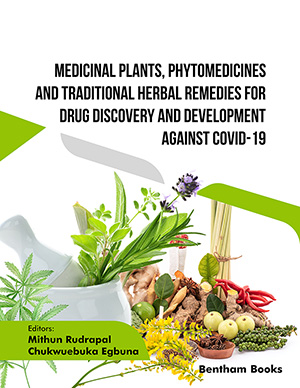Abstract
Background: Non-Hodgkin's lymphomas (NHL), derived from B- or T-cell, consist of a heterogeneous group of malignant lymphoproliferative disorders. Knockdown of Casein kinase 2 interacting protein-1 (CKIP-1) in NHL promoted cell proliferation and inhibited apoptosis via enhancing phosphorylated Protein Kinase B (PKB or AKT) expression. Statins are the class of drugs that inhibit the ratelimiting step of the mevalonate pathway, which is essential for the biosynthesis of various compounds, including cholesterol. Also, statins have anticancer properties being mediated by different mechanisms.
Methods: A search on databases like Scopus and PubMed with keywords such as statin and non- Hodgkin's lymphomas was performed and Kyoto Encyclopedia of Genes and Genomes (KEGG) website was used to evaluate and reconfirm the involved cellular signaling pathway.
Results: CKIP-1 is involved in the regulation of cell proliferation and apoptosis while plays an important role in many cancers. We can hypothesize that statins may increase the expression levels of CKIP-1 which could contribute to the reductions in phospho-AKT level. Hence, they may ameliorate the NHL patients via suppressing AKT phosphorylation and increasing CKIP- expression.
Conclusion: Present review confirms the positive effect of statins on NHL by increasing CKIP-1 and reducing cell proliferation, subsequently.
Keywords: Statin, CKIP, AKT, non-hodgkin's lymphomas, apoptosis, signaling pathway.
Current Drug Discovery Technologies
Title:Statins as the Controlling Agents for Non-Hodgkin's Lymphomas via Increasing the Casein Kinase 2 Interacting Protein-1: A Hypothesis
Volume: 17 Issue: 5
Author(s): Kimia Kazemi, Negin Mozafari, Hajar Ashrafi, Pedram Rafiei and Amir Azadi*
Affiliation:
- Pharmaceutical Sciences Research Center, Shiraz University of Medical Sciences, Shiraz,Iran
Keywords: Statin, CKIP, AKT, non-hodgkin's lymphomas, apoptosis, signaling pathway.
Abstract:
Background: Non-Hodgkin's lymphomas (NHL), derived from B- or T-cell, consist of a heterogeneous group of malignant lymphoproliferative disorders. Knockdown of Casein kinase 2 interacting protein-1 (CKIP-1) in NHL promoted cell proliferation and inhibited apoptosis via enhancing phosphorylated Protein Kinase B (PKB or AKT) expression. Statins are the class of drugs that inhibit the ratelimiting step of the mevalonate pathway, which is essential for the biosynthesis of various compounds, including cholesterol. Also, statins have anticancer properties being mediated by different mechanisms.
Methods: A search on databases like Scopus and PubMed with keywords such as statin and non- Hodgkin's lymphomas was performed and Kyoto Encyclopedia of Genes and Genomes (KEGG) website was used to evaluate and reconfirm the involved cellular signaling pathway.
Results: CKIP-1 is involved in the regulation of cell proliferation and apoptosis while plays an important role in many cancers. We can hypothesize that statins may increase the expression levels of CKIP-1 which could contribute to the reductions in phospho-AKT level. Hence, they may ameliorate the NHL patients via suppressing AKT phosphorylation and increasing CKIP- expression.
Conclusion: Present review confirms the positive effect of statins on NHL by increasing CKIP-1 and reducing cell proliferation, subsequently.
Export Options
About this article
Cite this article as:
Kazemi Kimia , Mozafari Negin , Ashrafi Hajar , Rafiei Pedram and Azadi Amir *, Statins as the Controlling Agents for Non-Hodgkin's Lymphomas via Increasing the Casein Kinase 2 Interacting Protein-1: A Hypothesis, Current Drug Discovery Technologies 2020; 17 (5) . https://dx.doi.org/10.2174/1570163816666190628165200
| DOI https://dx.doi.org/10.2174/1570163816666190628165200 |
Print ISSN 1570-1638 |
| Publisher Name Bentham Science Publisher |
Online ISSN 1875-6220 |
 41
41
- Author Guidelines
- Graphical Abstracts
- Fabricating and Stating False Information
- Research Misconduct
- Post Publication Discussions and Corrections
- Publishing Ethics and Rectitude
- Increase Visibility of Your Article
- Archiving Policies
- Peer Review Workflow
- Order Your Article Before Print
- Promote Your Article
- Manuscript Transfer Facility
- Editorial Policies
- Allegations from Whistleblowers
- Announcements
Related Articles
-
An Update on the Xenograft and Mouse Models Suitable for Investigating New Therapeutic Compounds for the Treatment of B-Cell Malignancies
Current Pharmaceutical Design Procarbazine – A Traditional Drug in the Treatment of Malignant Gliomas
Current Medicinal Chemistry Anti-CD20 Antibody in Primary Sjogren's Syndrome Managemen
Current Pharmaceutical Biotechnology Identification of Disease-Relevant Genes for Molecularly-Targeted Drug Discovery
Current Cancer Drug Targets Monoclonal Antibodies in Cancer Therapy
Current Medicinal Chemistry - Anti-Cancer Agents Nutlins and Ionizing Radiation in Cancer Therapy
Current Pharmaceutical Design Nuclear Export Mediated Regulation of MicroRNAs: Potential Target for Drug Intervention
Current Drug Targets Risk Factors for Lung Cancer in Never Smokers: A Recent Review Including Genetics
Current Respiratory Medicine Reviews New Framework for the Discovery of PRC2 Inhibitors: Epigenetic Drugs
Current Drug Targets From Nucleic Acids to Drug Discovery: Nucleobases as Emerging Templates for Drug Candidates
Current Medicinal Chemistry Ectopic Lymphoid Neogenesis and Lymphoid Chemokines in Sjogren’s Syndrome: At the Interplay between Chronic Inflammation, Autoimmunity and Lymphomagenesis
Current Pharmaceutical Biotechnology Therapies of Hematological Malignancies: An Overview of the Potential Targets and Their Inhibitors
Current Chemical Biology Drugging Cell Cycle Kinases in Cancer Therapy
Current Drug Targets Therapeutic Immunoconjugates. Which Cytotoxic Payload: Chemotherapeutic Drug (ADC) or Radionuclide (ARC) ?
Current Cancer Therapy Reviews Kinetic Measurement Techniques in the Evaluation of Lipid Metabolism
Current Drug Discovery Technologies The Role of DNA-Microarray in Translational Cancer Research
Current Pharmacogenomics Innovations and Opportunities to Improve Conventional (Deoxy)Nucleoside and Fluoropyrimidine Analogs in Cancer
Current Medicinal Chemistry Monoclonal Antibodies Carried in Drug Delivery Nanosystems as a Strategy for Cancer Treatment
Current Medicinal Chemistry Biological Agents in Rheumatoid Arthritis: A Cross-Link Between Immune Tolerance and Immune Surveillance
Current Rheumatology Reviews Role of mTOR in Hematological Malignancies
Current Cancer Therapy Reviews



























